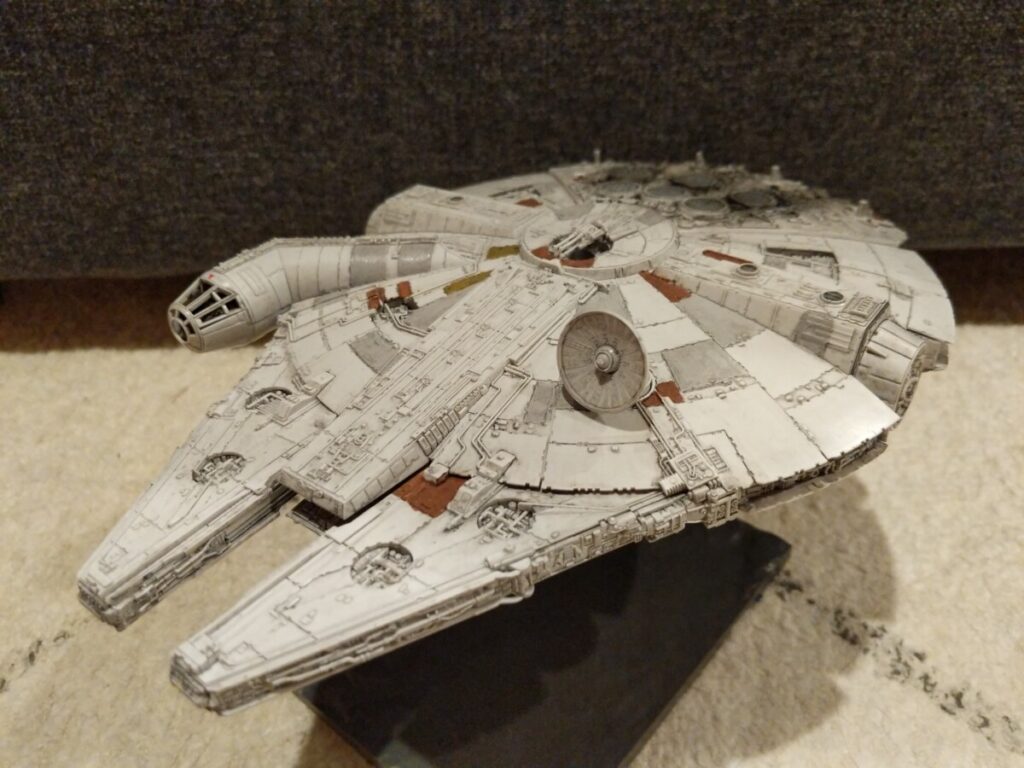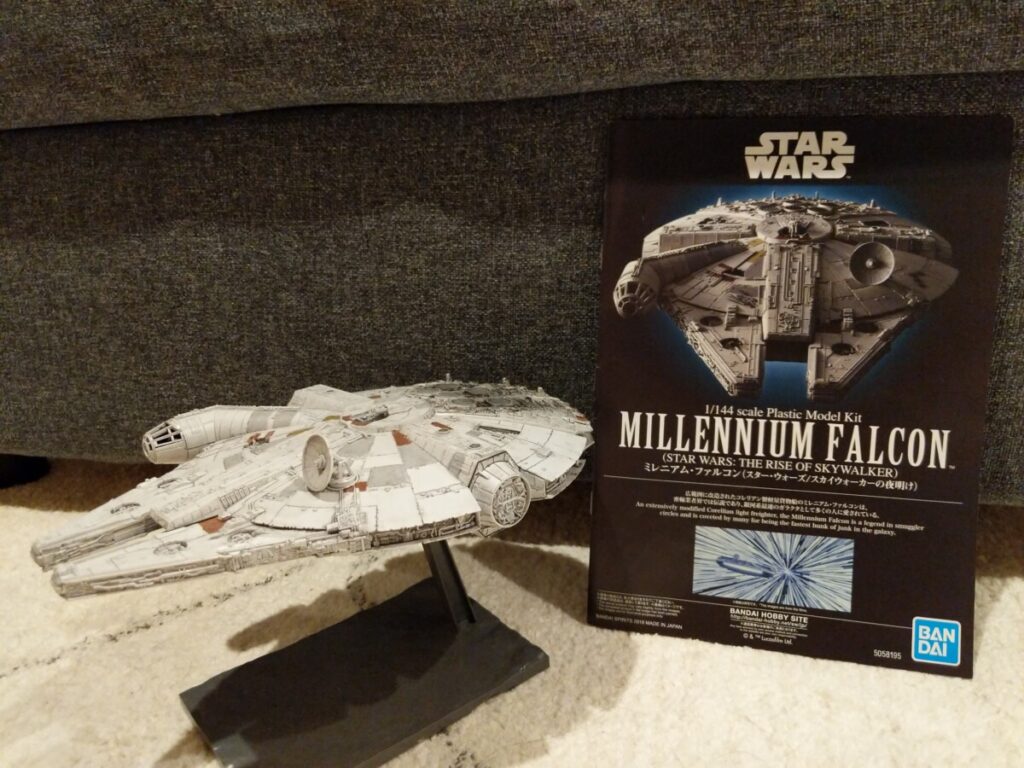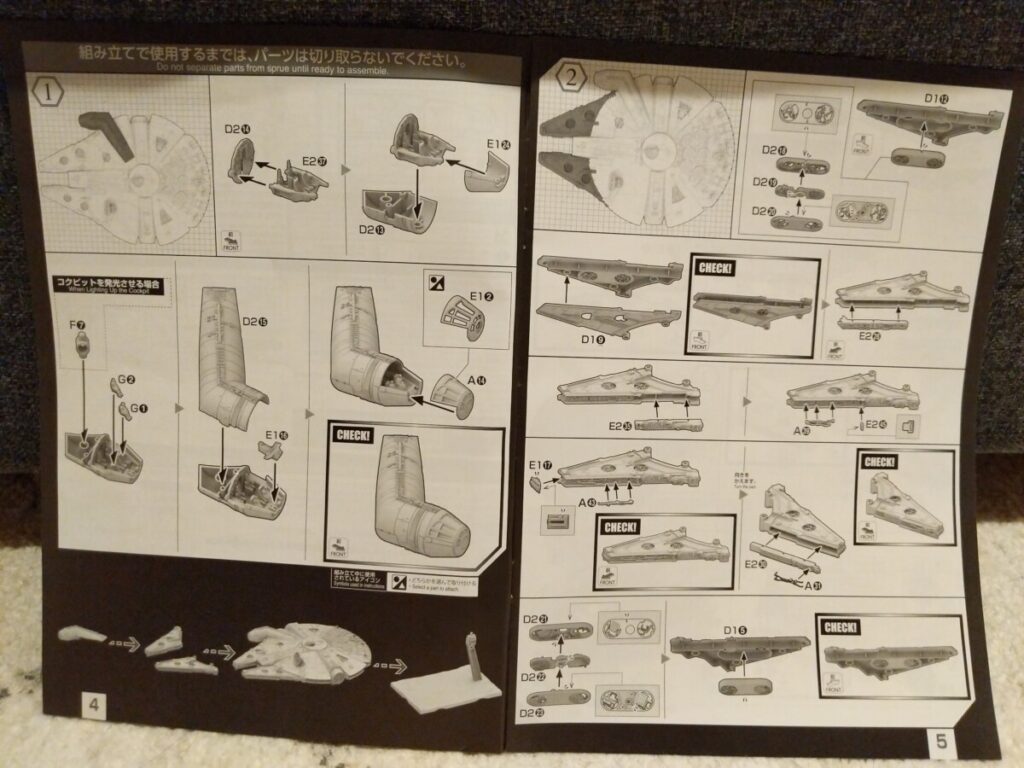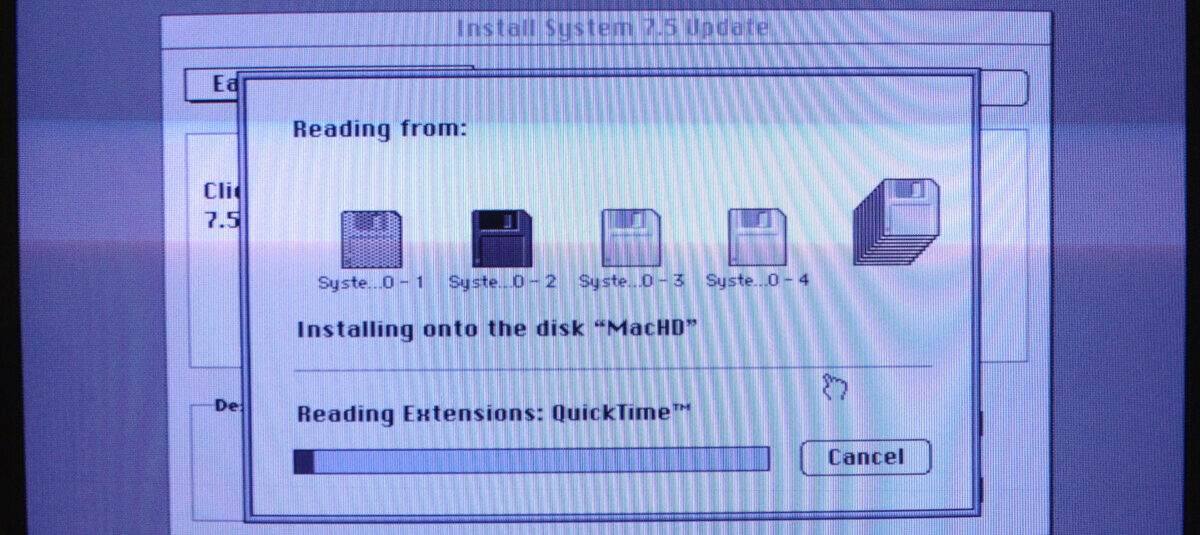


The above images show a completed Bandai 1/144 Scale Millennium Falcon plastic model with its instruction manual. These guides to building, configuring, setting up, and using things are an important part of technical communication. Do you use instruction manuals that come with the technologies that you own? Or, do you throw them away and figure things out on your own?
For this week’s class:
- Weekly Reading Report Exercise
- Intro Lecture (overlooked this from last week) and Discuss the Readings (let’s also talk about this piece on Axios today)
- My Professional Work, Our Sandbox Exercise
- Introduce first deliverable: Email
- Review Syllabus About Next Week’s Readings and Work




To: Professor Ellis
From: Tiana Beatty
Date: September 8th, 2022
Subject: Emails and Surveys
From what I understood from the readings about “Professional and Technical Writing 2.0,” is that there are a lot of processes that individuals go through when becoming a technical writer or writing as a technical writer. It involves a lot of fact-checking, research, and planning as it pertains the subject matter at hand. I know writing itself is an art form but because technical writing is another form of writing where you need lots of planning, research, and factual information. But what I would really would like to know is why is the involvement of technical writing is still so standardized when though we have evolved from paper and pen to laptops, computers, and other technological devices that enhance the productivity of technical writing?
In “How to email your professor without being (af),” I liked that it explores the different elements of emailing a professor in any setting. It explains and explores the type of professionalism that will be required in the workplace when anyone needs to communicate with their co-workers, bosses, and other corporate officials. Though some might think that this information is important, when in fact it is because an individual will have to learn and know how to communicate without having to speak unprofessionally or rather use the common language that used whenever we’re talking to friends and family.
TO: Prof. Ellis
FROM: Bria Glenn
DATE: September 8, 2022
SUBJECT: Tech Comm History
In Technical Communication or Writing, the foundation is very important when it comes to producing something such as a science report. There are steps to take to ensure you are getting the right information out to people and this is what they talk about when discussing the nine core competencies within Technical Communication. I was able to get definitions to words I may not have known before. For example, understanding what a deliverable is. After reading about all nine, I found the reviewing and editing part to be the most interesting because it plays a big part in making sure the final piece is good enough for consumers. In a Web 2.0 world, it can be interesting to see how others get information or even spread information. As a technical writer, I do think it is important to know how you are utilizing your skills and with the survey provided it was possible to understand this. Also, for others to take a glimpse into what those in this profession are writing about. It was a very thorough survey with clear and concise information.
TO: Prof. Ellis
FROM: Bria Glenn
DATE: September 8, 2022
SUBJECT: Emails and Surveys
In Technical Communication or Writing, the foundation is very important when it comes to producing something such as a science report. There are steps to take to ensure you are getting the right information out to people and this is what they talk about when discussing the nine core competencies within Technical Communication. I was able to get definitions to words I may not have known before. For example, understanding what a deliverable is. After reading about all nine, I found the reviewing and editing part to be the most interesting because it plays a big part in making sure the final piece is good enough for consumers. In a Web 2.0 world, it can be interesting to see how others get information or even spread information. As a technical writer, I do think it is important to know how you are utilizing your skills and with the survey provided it was possible to understand this. Also, for others to take a glimpse into what those in this profession are writing about. It was a very thorough survey with clear and concise information
To: Professor Ellis
From: Aaron Nieves
Date: 09/08/2022
Subject: Week 3 Reading
The reading concerning this week seemed to really focus on the parts of Visual Communication. The visual components of a piece are just as powerful as the written parts. Making sure there is a level of “feng shui” throughout each piece. The balance and alignment need to be comforting for a reader, just as much as the legibility and content of the writing itself.
The process from beginning to the end of the piece was a big topic. The Intercom magazine almost made it sound like an assembly line. First you plan out and research the work. Then, people will organize and draft pieces together. While at the same time, checking the visual aspects (balance/alignment/consistency and contrast). Finally, after the revisions and edits are finalized, the team comes together to confirm that the end product matches what they set out to achieve.
TO: Professor Ellis
FROM: Naila Butt
DATE: 8 SEPTEMBER 2022
SUBJECT: Web 2.0 World
The article Professional and Technical Communication in a Web 2.0 World gave me a lot of insight to how the field of professional and technical writing is changing. The article states that the idea of a “technical writer” is becoming rather dated as technology changes. As well as employers’ new demands. The modern technical writer will require an array of skills to succeed in their careers. As per the research, Profession Technical and Writing alumni are required to work on projects that involve visual design without the help of a design specialist. The research states some pedagogical implications that would benefits students of this field such as communications and usage of multi-media. As a PTW major this gives me an idea on skills I need to showcase on my portfolio. Visual design has become a significant component to the careers of technical writers.
The Tech Comm’s articles were really helpful in giving me an idea of what is a well-balanced piece of work. I’m happy to have printed these articles out because I see them being an asset to my future projects. Technical writer’s have many roles such as, content management, research, design, editing, and so forth. The articles gave a great basis to what my future projects should look like and I am looking forward to applying this knowledge later in my academic career.
To: Professor Ellis
From: Sandy Fougeres
Subject: Emails and Surveys
Date: 9/8/2022
In the article “Professional and Technical writing in a 2. World,” it discussed the need for a up to date survey on professional and technical writers and how they use technology along side their writing. The article utilized data in showing which type of writing was considered valuable, which was done more often either professionally or personally, and the demographics of writers completing the survey. The results were interesting in the article it showed that the most often done writing was emailing and this was also true for which type of writing was considered valuable. The article also discussed that men were to utilizing or writing about technology and women were to write more for marketing. In the article ” Special Issue of Intercom on Tech Comm’s Core Competencies,” it spoke mostly about the process used within technical writing. It talked about how to start writing a document by project planning, organizing and drafting, improving writing style, designing, and finally revising and editing. The article discussed this as key components when writing as a technical writer. Within the article there were break downs on technical communication genres, organizational design, communicating through writing effectively, using visuals in your writing etc. I thought this article was really helpful in that it gave me insight on the process a technical writer would take to write successfully. I felt like I got a better understanding on what the work is like writing on this level and the incorporation of team work.
TO: Professor Ellis
FROM: Khemraj Persaud
DATE: 9/8/2022
SUBJECT: Web 2.0
In our first reading, “Professional and Technical Communication in a Web 2.0 World,” by Blythe, Lauer, and Curran, we were presented with research about what PTW alumni have been up to since they graduated. The researchers found that most PTW graduates use a wild range of different types of writing when they write. They also work both alone and in a collaborative effort. As newer technologies and forms of media have emerged, the lines between professional and personal writing usage have become blurred. Texting has become an important part of informal communication for professional reasons. They found that most PWT graduates also write for pleasure in their down time.
The various articles we read in the Intercom magazine gave us a real world look at what is going on in the PTW industry. Each article gave us some insight about a particular area of work with the field, such as content development, written communication and reviewing and editing, just to name a few. It was interesting to read a modern take on what it takes to be a successful professional writer.
These two articles were eye opening. After reading the research about alums and the articles about different techniques being used in the field, I got a clearer sense of what to expect in my future career. I was able to take away how different technologies are shaping tech comm and I need to be on top of the newest innovations. I got a glimpse at what tools I’ll be using, how I will be going about communicating in general, as well as how and what I am writing about. The articles gave us something to think about in terms of how I will be putting work together.
We also read an article about emailing your professor. Oddly enough, while reading it, I thought,. “wow, I have been doing most of this for years.” I guess my years and years of college experience has taught me a thing or two about communicating with my professor. It was useful to have it laid out step by step, to reaffirm the choices that I have made as I have communicated throughout my academic career.
TO: Professor Jason W. Ellis
FROM: Khaled M Akam
DATE: 9/8/2022
SUBJECT: Emails and Surveys
Technical writers adapt to the environment of the audience. Technical writers had to grow and become communicator’s because the technology shift. In Web 2.0 World alumni took a survey online of their life 10 years in the future. It showed that people were not 100% working on what they thought they would be. The need to adapt and become better through the evolution of technology was massive. If one wasn’t able to keep evolving in what they did, they would be left behind by others in the same field. In Tech Comm’s issue the basics developed here was needed and fundamentally helped them. The change is ever adapting and evolving as a technical communicator.
To: Professor Ellis
From: Timothy B
Date: September 8, 2022
Subject: Surveys and Emails
In one reading we was given an insightful look on how web developers and alumni technical communicators asses their professional writing and the techniques they use to perform their activities as a technical communicator. At one section of the article it was described how useful surveys can be in finding what kind of writing was being fulfilled by the alumni technical communicators and what kinds of technologies they may have used to do their work.
In a different article titled “How to email your professor (without being annoying) it expressed insightful tips on how to email from a professional perspective. This is important because the truth of the matter is not a lot of students really know how to go about writing a professional email to a professor. They don’t know that there is an actual way and multiple ways to professionally format your email that you would want to send to your professor or nay professional for that matter. One should not write an email trying to pinpoint aimless thoughts together that are not guided by a general topic. One must expressive cohesive thought and formatting through their writing.
To: Professor Ellis
From: Timothy B
Date: September 8, 2022
Subject: Surveys and Emails
In one reading we was given an insightful look on how web developers and alumni technical communicators asses their professional writing and the techniques they use to perform their activities as a technical communicator. At one section of the article it was described how useful surveys can be in finding what kind of writing was being fulfilled by the alumni technical communicators and what kinds of technologies they may have used to do their work.
In a different article titled “How to email your professor (without being annoying) it expressed insightful tips on how to email from a professional perspective. This is important because the truth of the matter is not a lot of students really know how to go about writing a professional email to a professor. They don’t know that there is an actual way and multiple ways to professionally format your email that you would want to send to your professor or nay professional for that matter. One should not write an email trying to pinpoint aimless thoughts together that are not guided by a general topic. One must expressive cohesive thought and formatting through their writing.